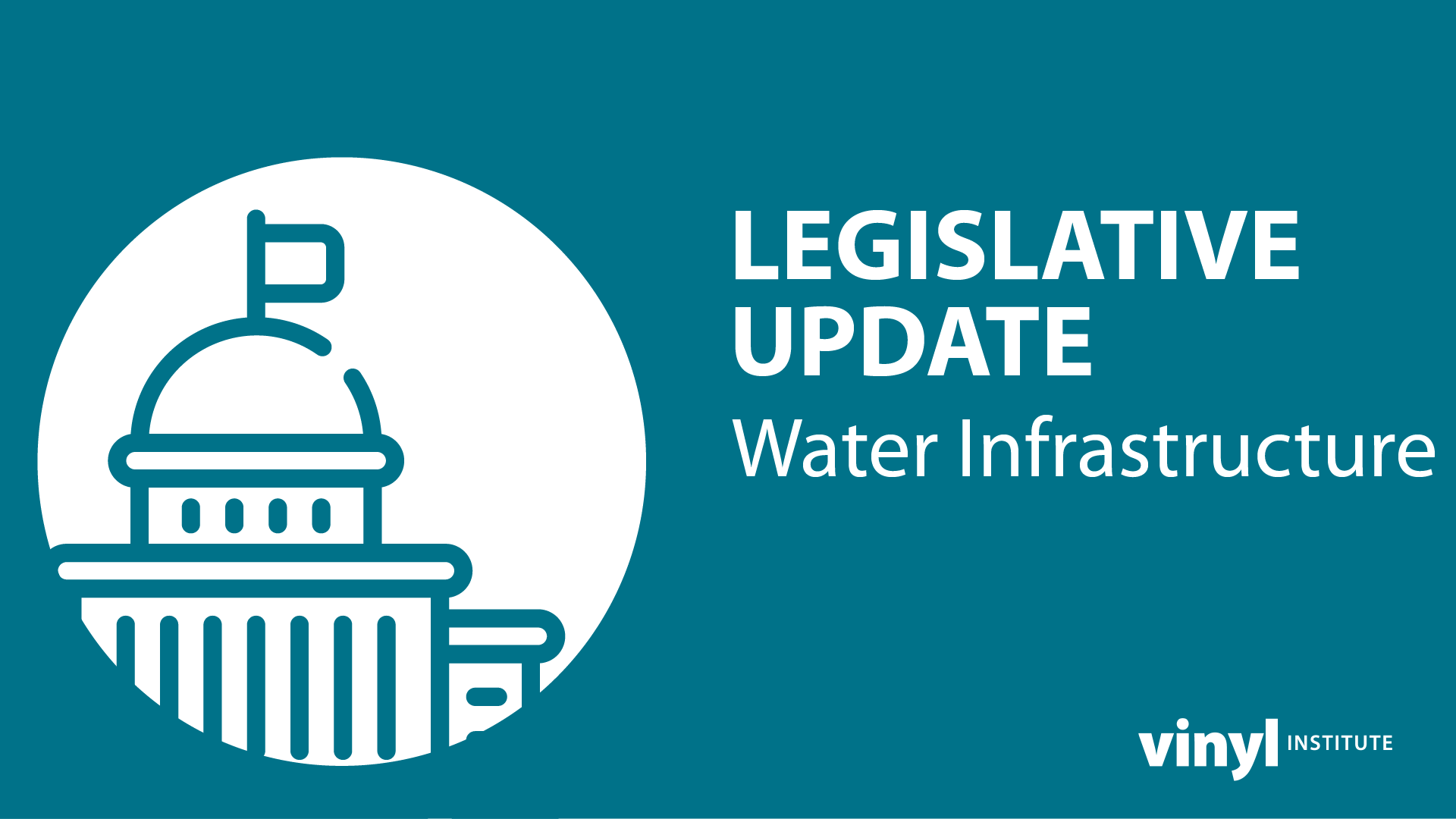This website uses cookies so that we can provide you with the best user experience possible. Cookie information is stored in your browser and performs functions such as recognising you when you return to our website and helping our team to understand which sections of the website you find most interesting and useful.
News
Legislative Update: Water Infrastructure Bill Makes Way to Senate Floor
Water Infrastructure
This week the Senate is considering the bipartisan water infrastructure bill, the Drinking Water and Wastewater Infrastructure Act of 2021 (S. 914). The Senate voted, 92-2, to consider and debate the bill and is expected to vote to pass the bill on Thursday. The legislation would authorize approximately $35 billion through fiscal year 2026 for new and existing U.S. Environmental Protection Agency (EPA) grant and financial assistance programs to improve states’ drinking water and wastewater infrastructure. $14.7 billion would be invested in the EPA’s Clean Water State Revolving Fund (CWSRF) and $14.7 billion for the EPA’s Drinking Water State Revolving Fund (DWSRF). The proposal would also authorize $100 million annually in grants supporting projects to reduce the concentration of lead in drinking, including replacing lead service lines.
The measure’s funding is a significant increase in comparison to past funding. In FY21, only $1.7 billion for wastewater infrastructure and $1.1 billion for drinking water infrastructure was spent. The CWSRF has been appropriated for previous years but never reauthorized since being established in 1987. Furthermore, for the first time, the DWSRF received equal funding in comparison to the CWSRF.
The Senate measure is less than the president’s proposed $111 billion investment. Biden’s plan would invest $45 billion in DWSRF and EPA Water Infrastructure Improvements for the Nation Act grants, as well as $56 billion in grants and loans to modernize aging wastewater systems. The White House released a Statement of Administration Policy supporting the measure and called the proposal “a good start to the much-needed funding” to improve America’s water systems.
Nominations
The Senate voted, 52-42, to confirm Janet McCabe as the deputy administrator of the Environmental Protection Agency (EPA). Republican Sens. Susan Collins (ME), Chuck Grassley (IA), and Lisa Murkowski (AK) voted to support her nomination, while Sen. Joe Manchin (WV) was the only Democrat to vote against McCabe’s confirmation.
Recycling
House Science Subcommittee on Research and Technology Chairwoman Haley Stevens (D-MI) and Rep. Anthony Gonzalez (R-OH) reintroduced the Plastic Waste Reduction and Recycling Research Act (H.R. 2821), a bipartisan bill to reduce plastic waste while improving the U.S.’s global competitiveness in the plastics recycling industry. The bill aims to increase the amount of plastic the U.S. recycles by directing the Office of Science and Technology Policy to establish a plastic waste reduction and recycling research and development program, calls on the Federal government to develop a strategic plan for plastic waste reduction, and calls for the development of standards for plastics recycling technologies. House Committee on Science, Space, and Technology Chairwoman Eddie Bernice Johnson (D-TX) and Ranking Member Frank Lucas (R-OK) are also original cosponsors of the legislation.
Special Elections
Former Democratic Rep. Cedric L. Richmond’s choice for successor, state Sen. Troy Carter, won the Louisiana 2nd District runoff on April 24. Carter, who is seen as a centrist willing to cross the aisle to work with Republicans to move legislation, ran against progressive state Sen. Karen Carter Peterson. The race in the heavy-leaning blue district of New Orleans is considered one of the early indicators of the direction that the Democratic Party will take in upcoming elections. The election also fills a Democratic seat that has sat vacant for an extended period in the caucus, hanging onto a narrow majority. Earlier in March, Republican Julia Letlow, widow of former Representative-elect Luke Letlow, won Louisiana’s 5th district special election.
Icon in graphic made by Freepik from www.flaticon.com


